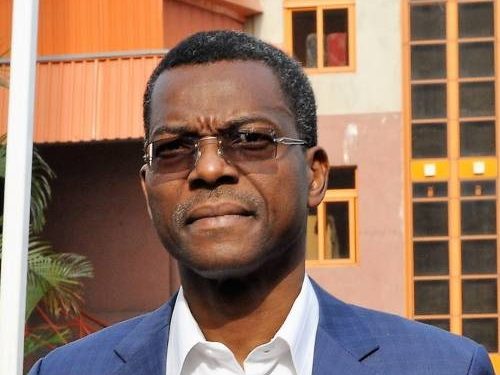Obasanjo’s error as President that’s still hurting Nigeria has been revealed.
NewsOne Nigeria reports that Nze Chidi Duru who was a pioneering member of the House of Representatives as the Fourth Republic took off in 1999, says what has happened to Nigeria as a “country took root in what happened in 1999/2000 when we left governance and began to play our politics.”
The former Chairman of the House Committees Privatisation and Commercialisation as well as Public Petitions, said that seed was sown in 2000 and 2001 when the then President Olusegun Obasanjo and his minders “constructively undermined the constitution of Nigeria with respect to the election of councillors and local government chairmen.”
Former President Olusegun Obasanjo attacked
Duru said the constitution was very clear that after two years, an election will be conducted and the councillors and local government chairmen in the 774 local governments of Nigeria will then be elected but because of politics, Obasanjo “convened a National Council of State meeting where, on the pretext that the voter register was not ready and having agreed with the then Alliance for Democracy (AD) governors and some of the governors on the platform of APP that now became ANPP and then innovated a system that enabled governors to appoint councillors and local government chairmen.”
The pioneering member of the House of Representatives made this comment in an interview with The Nation Newspaper where he noted that “nothing could have been more fundamental and disruptive as that singular act, because the constitution of a country is the spirit that guides a country.”
Asked what his views are since “One thing that people have been saying might be a way forward is restructuring the country“, Duru said: “I believe that institutional reforms are very important but also more important is that the players in the political space come to an understanding and appreciation of the higher responsibility or the burden they bear by being elected to elective positions and help, through that, to transform Nigeria.
“The downtime we’ve had as a country goes back to 1999 when, given an act of grace of God, a former Head of State, a military man, was again elected as a civilian president. And the wish of most of us, I believe, Nigerians and the international community was that he would have invested his time, energy and resources in helping to map a new Nigeria.”

Duru continued: “But I think that what has happened to us as a country took root in what happened in 1999/2000 when we left governance and began to play our politics. And that seed was sown in 2000 and 2001 when the president and his minders constructively undermined the constitution of Nigeria with respect to the election of councillors and local government chairmen.
“The constitution was very clear that after two years, an election will be conducted and the councillors and local government chairmen in the 774 local governments of Nigeria will then be elected. But because of politics, he convened a National Council of State meeting where, on the pretext that the voter register was not ready and having agreed with the then Alliance for Democracy (AD) governors and some of the governors on the platform of APP that now became ANPP and then innovated a system that enabled governors to appoint councillors and local government chairmen.
“Nothing could have been more fundamental and disruptive as that singular act, because the constitution of a country is the spirit that guides a country. So, if you can undermine the constitution, you can undermine any other law in Nigeria.
“So, it was very clear to people that the operators of the constitution and the people at the helm of affairs in Nigeria could willfully undermine the very basic laws or the basis on which they came to power. And the rest of the infractions that we saw from that time to 2007 up till date took root from what happened in 2001. The attempt to change the laws of Nigeria to enable a sitting president to run for third term was again a needless distraction that we need not have encouraged. People at the helm of affairs at national and state level were encouraged not to hand over to their deputy governors, at least, to give them a trying chance to be elected because the basis of having a deputy governor or a vice-president of a country is when you’re exiting and have done your two terms, is to offer the ticket more often than not to the vice-president or deputy governors who you have mentored over the period, to offer themselves to the electorates to see whether the electorate will accept them.
“It happened in the 36 states of Nigeria. It was only one state that handed over to the deputy governor. The president did not. He took another route, which was Umaru Yar’Adua. Yar’Adua became the candidate of PDP and became the president of Nigeria and of course, the rest is history. In the rest of the country, the same thing played out. So, institutional reform, restructuring by any word so called is so important, but more importantly people at the helm of affairs should be made to realise that the weight of responsibility that they carry by being elected on behalf of people of a given constituency to run their affairs, to represent them and to discharge their responsibility to the benefit of their constituents is for me, more overarching.
“Do I agree with restructuring? I do agree with it and I see the need for it. And I am one of the advocates that believe that Nigeria will get better if we can look at these things and address it politically. I don’t know if you’re aware that the El-Rufai committee that was set up by APC recommended restructuring as one of the signposts that the party in government should champion. Up till today, I don’t think there has been any deliberate effort on the part of the government to bring those to the table for discussion and then for implementation,” Duru added.






